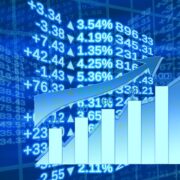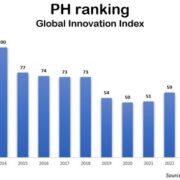With sustained government spending and the rollout of coronavirus vaccines, the investment banking arm of the Metrobank Group, First Metro Investment Corporation, anticipates the Philippine economy to spring back into positive territory between 5.5% to 6.5% for 2021.
“The global recovery will return to strength by 2022 and the Philippine economy will start rebounding trying to reach the 2019 level,” University of Asia and the Pacific (UA&P) economist Dr. Victor Abola said during the virtual FMIC economic and capital markets briefing Thursday.
In 2019, the Philippines’ gross domestic product (GDP) surged by 5.9% in 2019. However contracted by 10% as of third quarter 2020 due to the impact of the coronavirus pandemic.
In 2021, Abola said the expected increase of overseas Filipino workers (OFWs) remittances; government spending geared towards Reset (health), Rebound (infrastructure), and Recover (skills upgrading) programs; and market reform initiatives can support economic growth.
Market reform initiatives designed to rejuvenate the economy includes the Bayanihan 2 which is the Government Financial Institutions Unified Initiatives to Distressed Enterprises for Economic Recovery (GUIDE), the Financial Institutions Strategic Transfer (FIST), and Corporate Recovery and Tax Incentives for Enterprises (CREATE) bills.
Abola added other factors boosting this year’s growth are the mild inflation rate of 2.7% and the completion of major infrastructure projects and developments such as the Metro Manila subway, Northrail, South Luzon Expressway (SLEX) Extension, North Luzon Expressway (NLEX) East, and MRT-7 and Connector-2 which aims to ease traffic conditions in the National Capital Region.
In 2020, the Philippines’ inflation rate averaged 2.6% as the impact of typhoons on agriculture products pushed prices partly higher in the last quarter.
“Hopefully, (by the) second or third quarter of the year, you will have the vaccine and the restrictions will be more focused and more localized, (in) barangay level or even less,” he said.
Abola said 2021’s economic growth will be driven by industry sector, construction and manufacturing, while the services sector will continue to suffer with the ongoing impact the pandemic has on travel, hotels, and restaurants.






